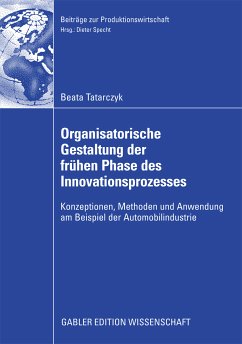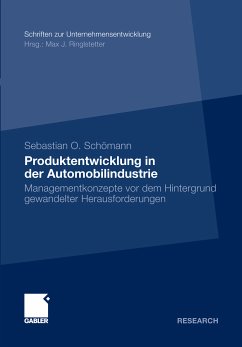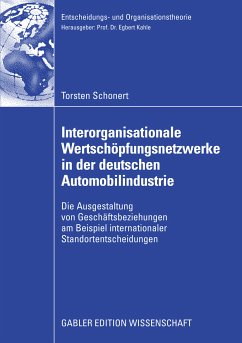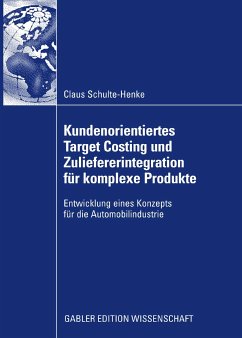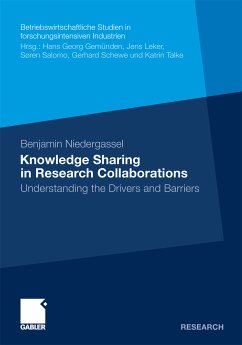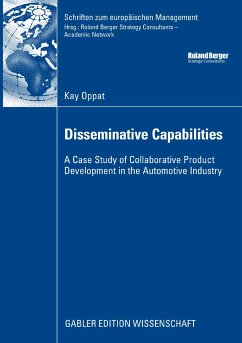
Disseminative Capabilities (eBook, PDF)
A Case Study of Collaborative Product Development in the Automotive Industry
Versandkostenfrei!
Sofort per Download lieferbar
Statt: 53,49 €**
40,95 €
inkl. MwSt.
**Preis der gedruckten Ausgabe (Broschiertes Buch)
Alle Infos zum eBook verschenkenWeitere Ausgaben:

PAYBACK Punkte
20 °P sammeln!
Nowadays, cooperating in Product Development seems to be a dominant strategy to lower costs and risks, to fully utilize capacities, and to gain access to lacking knowledge assets. Oppat analyzes cooperations in Product Development with a special focus on the automotive industry. He seeks answers to the question of how knowledge transfer between involved partners takes place. Although knowledge transfer and its success levers (e.g. absorptive capacity) are well-researched phenomena, equivalent investigations of the sender and her capabilities (DiC - Disseminative Capabilities) impacting inter-o...
Nowadays, cooperating in Product Development seems to be a dominant strategy to lower costs and risks, to fully utilize capacities, and to gain access to lacking knowledge assets. Oppat analyzes cooperations in Product Development with a special focus on the automotive industry. He seeks answers to the question of how knowledge transfer between involved partners takes place. Although knowledge transfer and its success levers (e.g. absorptive capacity) are well-researched phenomena, equivalent investigations of the sender and her capabilities (DiC - Disseminative Capabilities) impacting inter-organizational transfer success are lacking. The in-depth case studies conducted concentrate on joint car development projects between Magna Steyr, an Austrian-based company, and German-based BMW, Mercedes Benz, and Audi. The research results clearly indicate that DiC have an impact on the knowledge transfer process and can explain why the analyzed projects differ in terms of transfer success. Based on the research findings, this work provides managerial implications for all eight dimensions of DiC and, by deploying insights from the empirical investigations, outlines ways to develop them successfully.
Dieser Download kann aus rechtlichen Gründen nur mit Rechnungsadresse in A, B, BG, CY, CZ, D, DK, EW, E, FIN, F, GR, HR, H, IRL, I, LT, L, LR, M, NL, PL, P, R, S, SLO, SK ausgeliefert werden.







